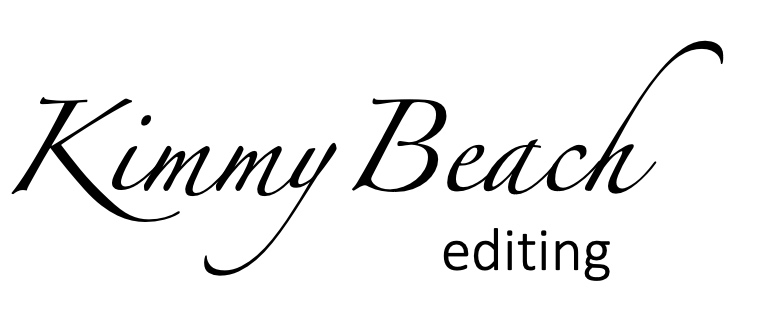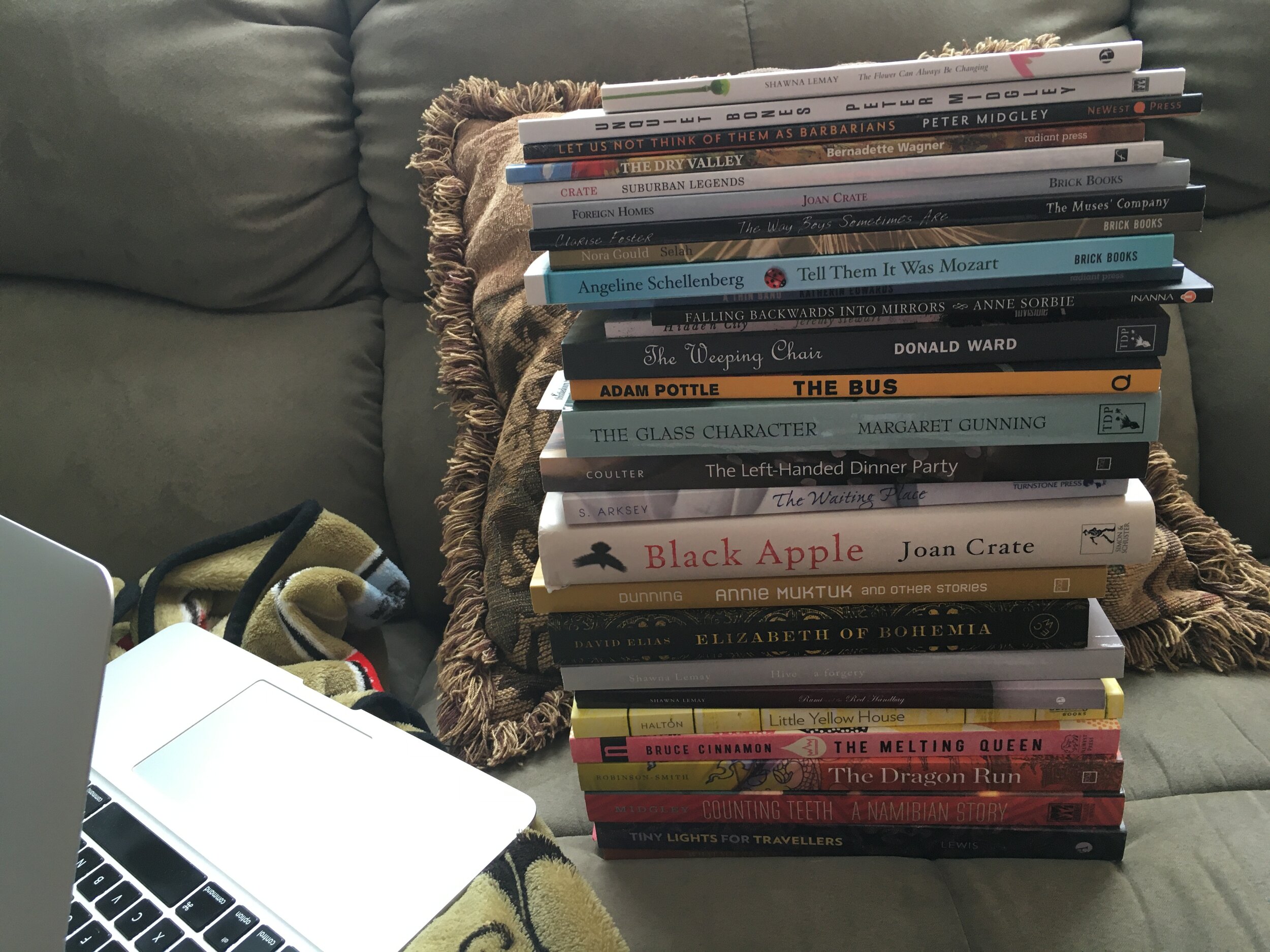How in the name of squatty pink-frilled alarm clocks?
A selection of books I’ve worked on. If you don’t see yours here, it’s because I don’t have a physical copy, or I’ve loaned it to someone I trust. Usually mom. This might be a good starting point for a reading list of recent Canadian works.
What the what? You shall soon see.
I’m way behind on my Goodreads challenge for this year, and it’s not only because I’ve been busy editing. It’s also because sometimes the most pleasurable things in our lives can seem like chores. We need ways to organize, compartmentalize, and focus in our busy lives.
When our brains are full, they can often tell us that the activity we most love in the world (reading, raising pigeons, going to the movies) is just One More Thing™ on the to-do list of all the things. The TBR stack can be overwhelming. In my case, it’s an entire bookshelf. Does this stress me out? Damn rights. And it’s because I only have so many more books I can realistically read before I kick the proverbial bucket. I figure if all goes well, I can read 3000 more books in the next thirty years.
That might be pushing it, and it’s also why you might sometimes see me sitting on the floor in the children’s department of the library, ploughing through kids’ books to up my numbers.
Who am I answering to? No one but myself.
I have about five books on the go at the moment, and I should have taken out early stocks in Post-It Notes. I take so many notes of great lines and great dialogue and great plots (or shitty ones), and they all go into journals. Some I use in my own way, and some I just enjoy reading again.
One of my current re-reads is a novel called Today is Tonight by Jean Harlow.
Yup. You read that right. Jean Harlow wrote a novel. Here she is with my favourite movie star of all time: my beloved James Cagney. This is a publicity still for The Public Enemy (1931). Harlow wrote the novel in the mid thirties, shortly before her death from kidney failure at the age of twenty-seven, but it wasn’t published till the 1960s.
I acquired this and read it in the late 1990s when I was researching my book about James Cagney, and I remembered it not being terrible! It’s about a young socialite couple who are left broke after the stock market crash of 1929. The husband has an accident which leaves him blind, and knowing that he doesn’t want her to work, the narrator (his wife) devises an elaborate scheme of switching day with night so she can work without him missing her.
In reading it again, I’m finding so many delightful touches!
“The Club Heron has charged you a dollar and seventy-five cents for a bottle of ginger ale a good many times or I don’t know my onions.”
“I don’t know my onions”? I have no idea what that means, but I approve.
Dig:
“How in the name of squatty pink-frilled alarm clocks does Peter stand for you being out all night?””
“Squatty pink-frilled alarm clocks”? Again, no idea, but I know I’m utterly charmed. I also know that I’m not done with Hollywood in the 1930s in terms of my writing. I’ll do something with this in the future, though at the moment, I don’t know what.
This Harlow book was as brilliant a revelation to me as finding out that Marilyn Monroe was a voracious reader and had a library of over 400 books.
I was also delighted to find out that a list of what David Bowie considered the best 100 books of all time is really available. I’ve read a handful on his list, and it’s my intention to work through it before I’m sixty. That gives me just over five years, while allowing time for life and work and reading other books. Doable? I think so.
And that brings me to my point. As writers, we already know that we need to be reading as much as we can. I’ve touched on this in earlier posts, but here’s how it applies to editing our work: read anything and count up how many times the author uses the word, “grab”. Rewrite the sentence with a different, more descriptive word. Now go do that to your own work in progress.
Find a list you can tackle if the amount of books in the world is completely overwhelming (it is). Start with the longlists for literary prizes (even those not in Canada). Give yourself a year or two to tackle Bowie’s list. Add up how many books you’ve read that Marilyn Monroe had on her shelves, print it out, and cross them off as you go.
Read Jean Harlow’s book and try to imagine how someone could gulp “whimsically”. Have you put anything impossible to do or think about in your work? Can one gulp whimsically? I have no idea, but I’m pretty sure that I couldn’t tell a whimsical gulp from any other kind of gulp. Do the characters in your favourite book nod “in agreement”? Do you know any other kind of nodding, unless one is drifting off sitting up?
I’m not suggesting we have our editors’ hats on all the time when we’re reading for pleasure. I’m suggesting always having a pack of Post-Its next to us so we can flag words or phrases we hope never to use. But also to flag fantastic new (to us) ways in which language can be used to its best effect.
That alarm clock? No clue, but I do know I’m going to incorporate it into my daily speech whenever possible.
~~
While I have you, in partnership with the Guild, I’m now offering a 10% discount on my e-course on editing your own prose to all members of the Writers’ Guild of Alberta. Pop me a note on my contact page above, and I’ll send you the code!
~~
[NOTE: Today is Tonight is in the public domain, in case you’re wondering why copyright-stickler me pulled all those words from it up there.]





